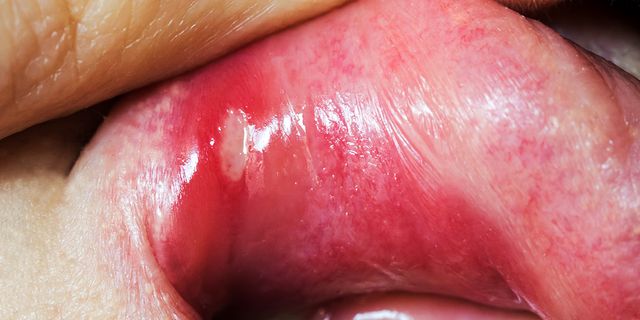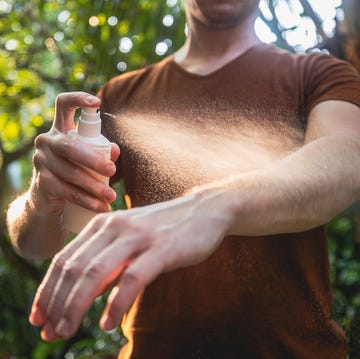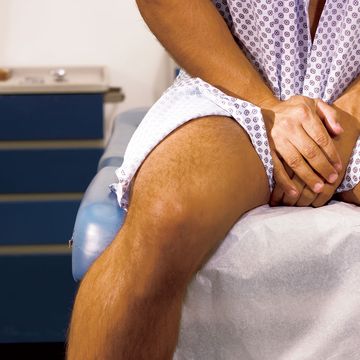You take a simple sip of water—then you feel a painful, burning sensation within your mouth. A look in the mirror shows a round or oval, white or yellowish lesion with a red border.
That's a canker sore, and if you're one of the unlucky people prone to them, you know they can hurt pretty damn bad. In fact, one in five Americans gets canker sores every year, says Matthew L. Mintz, M.D., an internist in Bethesda, Maryland.
Canker sores, which can pop up on the insides of your cheek or on your tongue, gums, or soft palate, can make eating, drinking, and doing pretty much anything with your mouth an ordeal. And experts don't really know what causes them, he adds.
About a third of people who get them have a family history with them, so it’s possible they’re genetic, but stress tends to make them pop up more. Acidic fruits, braces, and dentures can also irritate the mouth to cause canker sores, says Neal Shipley, M.D, an emergency medicine doctor at Northwell Health-GoHealth Urgent Care.
Regardless of what causes them, there's a reason they sores are so painful: There are lots of nerves in the lining of the mouth, which get exposed to saliva, food, drinks, and air when the tissue's broken, says Dr. Mintz. That means even a simple swish of water can aggravate the nerves and cause you a major ouch.
Canker sores are different from cold sores, though people sometimes use the terms interchangeably. But there are some important differences: Cold sores, which are caused by the herpes virus, are contagious, while canker sores are not (Here's how to treat a cold sore).
While canker sores usually go away on their own in a few days’ time, any home remedies that make them more tolerable in the meantime can be a godsend, says Dr. Mintz.
6 Grooming Hacks You Need to Know:
The best way to treat canker sores is to get an over-the-counter topical anesthetic like benzocaine, says Dr. Mintz. Products like Iodent Oral Analgesic Gel Maximum Strength 20% Benzocaine, for instance, numbs the pain in your mouth.
If that doesn’t work, you could ask a doctor to prescribe a topical steroid, which reduces the inflammation that likely causes canker sores.
Or, you can use a home remedy for canker sores. Dr. Shipley recommends rinsing your mouth with milk of magnesia or putting a Tums or Rolaids (which contain milk of magnesia) on the sore to neutralize any acids in your mouth that are making it more painful.
Putting a wet tea bag on the sore for five minutes can also help because tea neutralizes acids and the tannic acid in it reduces inflammation. Putting alum on the spot for a minute, which can dry out the area to reduce irritation, and rinsing your mouth with salt water to clean it can also help ease the pain, says Dr. Mintz.
If you're prone to canker sores, chances are good you'll continue to experience them at least sporadically. Still, sometimes, canker sores are caused by a deficiency of the amino acid lysine, Dr. Shipley explains. So, taking lysine supplements could help clear up canker sores and prevent more in the future. In the meantime, keep your mouth clean and avoid spicy foods so you don’t make matters worse (Want more health hacks delivered right to your inbox? Sign up for our Daily Dose newsletter).













